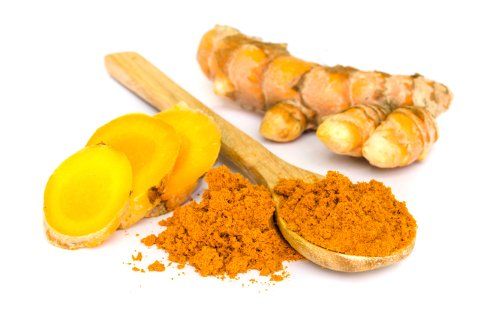Piperine, Curcumin Complex Reduces Total Body Fat in Animal Study
Sabinsa says that the results from this animal study add to the company’s existing research highlighting the synergistic effects of piperine combined with curcumin.

A new, independent study1 conducted by scientists at Jane Mayer U.S. Department of Agriculture Human Nutrition Center for Aging at Tufts University (Boston) and Tohoku University (Miyagi, Japan) found that Sabinsa’s (East Windsor, NJ) BioPerine black pepper extract and Curcumin C3 complex work together to help modulate body fat accumulation in obese mice. Sabinsa says that the results from this animal study add to the company’s existing research highlighting the synergistic effects of piperine combined with curcumin.
Existing research suggests that specific dietary components found in spices may have a beneficial effect on metabolism, the study authors add. For the purposes of this study, the researchers focused on curcumin, the major polyphenol in turmeric (Curcuma longa), and piperine, the bioactive alkaloid in pepper. Curcumin is said to possess anti-inflammatory and anti-obesity properties, while piperine has been shown to increase curcumin’s absorption and bioavailability in the body. In addition, the two ingredients together may also help to attenuate inflammation.
In the study, the researchers mimicked the kind of caloric restriction regimen an obese individual might undertake to lose weight, including potentially accelerating the loss of body weight by combining the regimen with dietary bioactive compounds or drugs known to increase metabolism and weight loss.
During the first phase of the study, researchers fed 47 mice a high-fat diet for 23 weeks to induce obesity. The mice were then divided into five groups. While one group continued to consume the high-fat diet ad libitum, the other four cohorts underwent a caloric-restriction program including a 10% reduction in food intake for 10 weeks, followed by a 20% reduction in food intake for 20 weeks. In addition, the mice were supplemented with either 1) 1 g/kg curcumin; 2) 50 mg/kg piperine; 3) 1 g/kg curcumin plus 50 mg/kg piperine; or 4) none of the above.
Researchers measured the mice’s body weight twice per week. Starting from week 23, the researchers measured the mice’s body weight once every two weeks using an animal magnetic resonance imaging (MRI) system (EcoMRI). They also recorded the mice’s body fat percentages, as well as the plasma inflammatory markers associated with obesity. The researchers also measured plasma curcumin metabolites and length of the liver telomeres, or the protective end-caps on the end of chromosomes. In addition to modulating energy expenditure and body fat metabolism, caloric restriction helps to regulate telomere length. Telomeres help to preserve the integrity of DNA. The study authors write that one of the factors indicative of cellular health is the length of the telomeres. Shortened telomeres indicate cellular senescence and aging.
At the end of the 53-week study period, all mice fed the high-fat diet had gained a significant amount of body weight, with up 49% of their total weight consisting of body fat. When the researchers restricted the caloric intake of the mice by 10%, weight gain stabilized, while the percentage of total body fat increased. When the researchers increased the caloric restriction by 20%, the mice did lose body weight, though the percentage of body fat remained significant. Neither curcumin, piperine, or the curcumin-piperine combination affected the rate of weight loss; however, the mice’s body fat percentage was reduced through supplementation with the curcumin-piperine combination.
The mice supplemented with the combination of curcumin and piperine also exhibited significantly reduced amounts of adiposity compared with the ad libitum group, but the groups that received curcumin or piperine alone did not demonstrate increased body fat loss. In addition, the mice given the combination of curcumin and piperine did see a decrease in some of the inflammatory cytokine markers associated with obesity, but curcumin and piperine had no effect on other inflammatory markers.
Finally, the researchers measured the telomere length in the livers of the obese mice. The caloric-restriction program alone was not effective in increasing the length of the telomeres, but the shortening of the telomeres was attenuated in the cohort supplemented with the curcumin-piperine combination. The researchers concluded that “when [a high-fat diet] regimen is subjected to [caloric restriction] immediately, telomere length is probably affected by oxidative stress. However, the inclusion of [curcumin] or [piperine] into the diet suppressed telomere shortening to some extent. This effect was further enhanced when [curcumin plus piperine] was included in the diet.”
Nagabhushanam Kalyanam, PhD, president, research and development, Sabinsa, elaborated on the study results in a press statement: “On the whole, it was concluded that this nutrient combination, curcumin-piperine, works well to reduce total body fat, reduces cellular aging as indicated by preserving telomere length, and enhance the [caloric restriction] effects for the prevention of metabolic syndrome by reducing the low grade chronic inflammation that always persists in obese conditions.”
References:
- Miyazawa T et al., “Curcumin and piperine supplementation of obese mice under caloric restriction modulates body fat and interleukin-1β,” Nutrition and Metabolism. Published online February 6, 2018.










